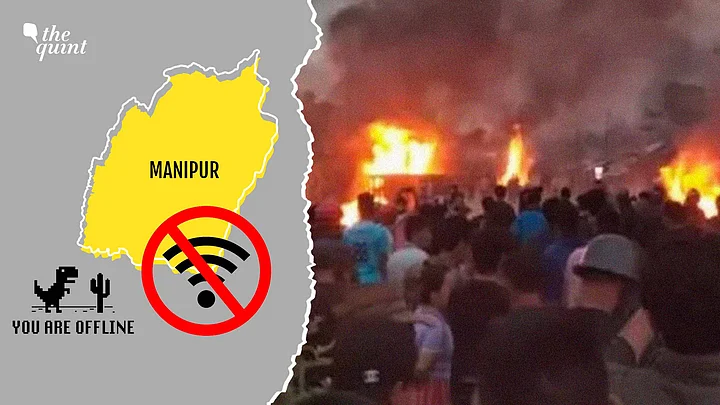The National Federation of Indian Women (NFIW) sent a 3-member fact-finding committee to Manipur from 28 June to 1 July 2023. The team consisted of NFIW President Annie Raja, NFIW National Secretary Nisha Sidhu and independent-lawyer Deeksha Dwivedi and their agenda was to examine the ongoing violence in the State.
The NFIW published the report of this exercise on 8 July, finding that the events in Manipur are “state-sponsored violence." In one of its findings, the report says that “instead of taking steps to safeguard the lives and livelihood of the people in Manipur, the government continues its provocative actions which further deepens the anger and rift between two major communities.”
The Report, The FIR & The Court Hearing: What Happened?
In what seems like a retaliation to the report, on 8 July, the Manipur police lodged an FIR against the three members under various sections of the IPC—including:
Sedition, waging war against India, assaulting the President or Governor with a view to coerce an order, provoking riot, and several other offences.
Reportedly, the FIR focuses on the finding of “state-sponsored violence” and claims that since the finding is made without conclusive proof, it amounts to a “conspiracy” to overthrow the State. Around 1500 civil society activists and journalists condemned the FIR in a joint statement issued on the same day.
Apprehending arrest pursuant to the FIR, one of the members (Deeksha Dwivedi) approached the Supreme Court seeking protection from coercive action.
The Court issued notice on 11 July and protected Dwivedi from arrest for a few days. In the meantime, Solicitor-General Tushar Mehta, who was representing the Manipur Government, was asked to obtain instructions about the issue. On 17 July, after hearing both sides, the Court disposed of the petition, extended the protection for four more weeks, and allowed Dwivedi to apply for bail under the ordinary procedural criminal law. In those proceedings, the Court directed, Dwivedi will be allowed to appear through video conferencing.
Can Fact-Finding Amount To Sedition?
It is bizarre that a simple fact-finding exercise has (as per media reports) been termed as ‘sedition’, ‘waging war’, ‘assault’, ‘conspiracy’ and what not. To say the least, these offences are not even remotely attracted in the facts as reported.
In a country governed by the rule of law, one is free—or at least ought to be free—to infer that the State is guilty of inciting violence, and to publish that inference.
Besides, the constitutional validity of sedition (Section 124A of the IPC) is presently under challenge before the Supreme Court.
As an interim measure, on 11 May 2022, the Supreme Court had ordered that no authority should register an FIR under Section 124A.
Subsequently, the Attorney General assured the Court that “every interest will be protected” and that “there will be no prejudice to anyone”.
It is unfortunate that Section 124A is being added to FIRs despite the Supreme Court’s clear directions.
But still, those familiar with Indian constitutional law might say this is nothing new, since Section 66A of the Information Technology Act continues to be used despite the Supreme Court having declared it unconstitutional eight years ago.
A Pattern of Blocking Information?
Besides trying to deter journalists, governments in India have repeatedly imposed internet shutdowns of a disproportionate nature. These shutdowns are often imposed under the garb of public order or national security, for it is claimed that anti-social elements will use the internet to hatch conspiracies of violence.
For instance, the internet was completely blocked in Jammu & Kashmir for a long time; shutdowns were imposed in various parts of the country during the CAA protests; and amid the unfolding violence in the state, the internet was blocked in Manipur as well (prompting a regional tribe to start its own newspaper).
The Fundamental Right to Know
Way back in 1975, Justice KK Mathew of the Supreme Court said:
Such elementary transparency is essential to the rule of law. It does not bode well on part of the Government to block the internet and to prevent/deter journalists from accessing the site of action.
People have a fundamental right to know what is happening in Manipur. Shutting down the internet and deterring reporters from publishing bitter news will only delegitimise the Government. It is unfortunate that the Manipur police are proactive in curbing criticisms of the State. It would be safe to say that, at the moment, their attention is best dedicated elsewhere.
(Shrutanjaya Bhardwaj is a lawyer practising in the Supreme Court of India. This is an opinion piece. The views expressed above are the author’s own. The Quint neither endorses nor is responsible for them.)
